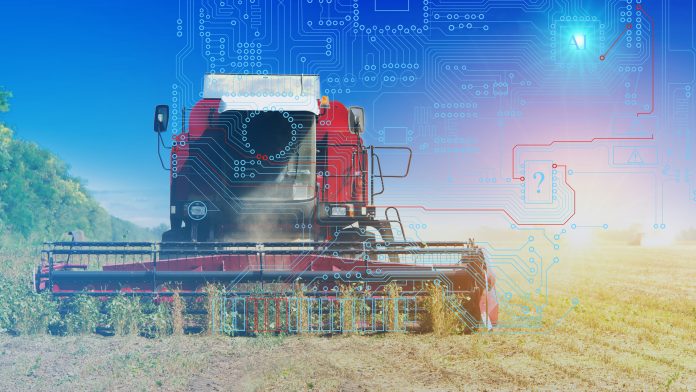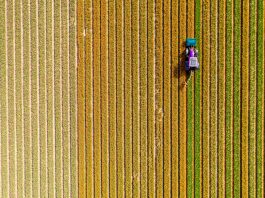The Innovation Platform speaks to Innovation for Agriculture’s Dr Lisa Morgans about the latest technology in sustainable conservation agriculture.
In today’s changing environment, farmers must continuously learn, adopt and adapt new technology and practices, seek out opportunities in diverse markets and products, as well as respond to changes in what consumers want from their food in order to promote sustainable agriculture.
Innovation for Agriculture (IFA) is a Knowledge Exchange charity set up by the Royal Agricultural Society of England (RASE) in order to bridge the gulf between science and its practical application and use on farms. They are farmer-facing and bring research and technological development to farmers in order for them to adapt and assimilate it with their individual farms.
As a team of 12, IFA work in the following three main areas:
- Precision Livestock: covering all livestock sectors with the general aim of improving animal health and wellbeing, as well as farmer wellbeing. One way that they address that is the use of technology on farms and finding ways for famers to use the vast amount of data generated on their farms. IFA also work on pan-European projects on responsible antimicrobial use and animal welfare;
- Soils and Water: they work closely with farmers, landowners, NGOs and water companies to improve farming practice, with a focus on improving soil health and reducing water pollution from farming. So far, the IFA have run six bespoke workshops for a water company to highlight management techniques which affect water quality. The Soil and Water Team are also involved in several EU projects including CO2 sequestration, Risk Management and Integrated Weed Management;
- Regenerative Agriculture: including a focus on the practical measure’s farmers can adopt to reduce their carbon footprint, which includes Agro-forestry, mob grazing and re-introducing ruminants to arable land.
The Innovation Platform speaks to Head of (Precision) Livestock at IFA Dr Lisa Morgans about the development of robotics in agriculture, and the latest technology in sustainable conservation agriculture.
Why is it important to make farming more sustainable, resilient and productive, and what role can technology play in this?
Global agriculture is often blamed for many of the pressing social and environmental challenges facing us today, such as climate change. Indeed, global agriculture is part of the problem of climate change, but it is also part of the solution. We believe at IFA that British Agriculture has some of the best farms, innovations, technologies and practices in the world, which will be necessary to mitigate against climate change and in order to look after the land. The climate crisis is affecting everyone, not least of all farmers. They are at the forefront of changing weather systems and bear the brunt of the extremes of our climate and markets.
It is now more important than ever that farmers can adapt to change in order to continue farming in the future. Farmers need to ensure that their current farming practices look after the land and soil for future generations, and they must be resilient to changes beyond their control (such as the changing political and natural landscape), but principally, the volatile markets they are dependent on. They must continuously learn, adopt and adapt new technology and practices, seek out opportunities in diverse markets and products, as well as respond to changes in what consumers want from their food in order to be competitive. It’s not easy being a farmer, but everyone needs farmers, every day of their lives.
Technology can and is helping farmers with this transition. Technology is allowing farmers to target the use of pesticides and other farm chemicals so they can use less. Wearable sensory technology is alerting farmers to signs of disease in their livestock earlier, which improves outcomes and helps reduce antibiotic use. Cloud-based data management systems that integrate multiple information sources are reducing farmer workload and data recording. Despite all the advances in data management, thermal imaging, Artificial Intelligence (AI) and drone technology to name a few, there is still a substantial gap between the science and practices on farm. Knowledge Exchange organisations, such as IFA, play a key role in bridging this gap and helping farmers become more resilient and sustainable.
How important is the development of robotics in agriculture?
Robotics in agriculture is important for several reasons, however, it is not the only solution for transforming farming. Firstly, automated robotic milking systems are already commonplace on dairy farms across the world and increasingly so in the UK. Several companies offer robotic milking systems to dairy farmers, which when combined with the benefit of flexible working hours (e.g. farmers are not tied to twice a day milking in a parlour) and the potential of improved cow welfare, they have proved to be a success for many with the improvement of wellbeing for cows.
Alongside these systems are robotic feeders and slurry scrapers. With the increasing difficulty in finding skilled farm staff, robotic systems could become even more important. UK farming has been quite dependent on the international work force in the past and with changes in policy at a government level, this pool of skilled labour could dry up. This may be a driver for more robotic technology on farms. Nevertheless, until robotics can deliver the same outputs as a skilled stock person that can observe a herd/flock of animals and pull upon prior knowledge to inform management decisions in a reliable and independent way, then humans will always be needed in some capacity on livestock farms.
What are some of the latest technological developments in sustainable conservation agriculture?
As previously mentioned, drone technology for observing crops without having to drive/walk into fields is proving very effective at spotting weeds and diseased plants early on and allows for targeted treatment with pesticides or manual removal of affected plants. Moreover, advancements in GPS-guided machinery has improved practices when sowing and harvesting crops with minimal damage to soil from compaction.
Are there any IFA projects and/or programmes in particular that you would like to highlight?
With the current focus on climate change and emissions from agriculture, we are developing several projects that can help farmers reduce their impact on the environment. We have a one day conference on the 4th March in Thetford to help farmers learn how grazing livestock can help arable farmers with improved soil health and how grazing land can act as a carbon sink. We are also organising a series of workshops to help farmers use technology and make sense of data to help them with their daily tasks on farm.
Dr Lisa Morgans BVSc PhD MRCVS
Head of (Precision) Livestock
Innovation for Agriculture
Tweet @InnovationforAg
www.innovationforagriculture.org.uk
Please note, this article will also appear in the first edition of our new quarterly publication.





